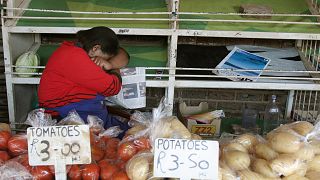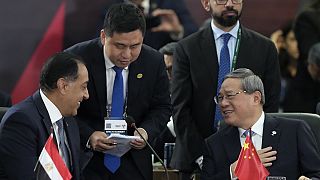Egypt
Egypt’s economy is still suffering five years after the infamous uprising that led to the ousting of former president Hosni Mubarak.
The North African country once a pillar in the continent and the biggest recipient of foreign direct investment has struggled to spur economic growth.
Political turmoil has affected top sources of foreign currency including the Suez Canal and tourism market.
“Egypt has a few normal sources of foreign currency; historically it has been exporting petroleum products, which has diminished, tourism, which has also diminished, sharply, and the Suez Canal revenues. The Suez Canal revenues remain – it’s a reflection of total global trade,” Chairman of the Pharaohs Holding, a Cairo-based investment bank, and economic analyst, Angus Blair said.
The canal has been a major income source for Egypt, whereby about 10 per cent of all global maritime trade passes through.
The chairman of the Suez Canal authority, Mohab Mamish said, ‘‘we [Egyptians] should always try to be positive – because the Suez Canal is now considered the main source of foreign currency for Egypt’s economy.”
There are fears that the current dollar shortage could usher the country into deeper recession if the government does not avert economic pressures.
“In the short-to-medium term, the central bank and the finance ministry is going to have to restrict, or is going to restrict, quite a number of imports into Egypt to cut the import bill by about 20-25 percent,” said Blair.
In November, the Russian plane crash dealt a blow to the already ailing tourism sector, once a backbone to the economy. This led to several countries including the United Kingdom evacuating their citizens and ban flights to Sharm al-Sheikh resort city, a popular tourist destination.













02:20
Descendants of enslaved Africans find connection in Ghana
Go to video
Gaza’s scarcity of cash fuels desperation, sparks unusual trade
01:08
Dancehall superstar Shatta Wale urges young people to back President Mahama
01:54
"Great economic potential in Africa": five African leaders have lunch with Trump
Go to video
Cameroon imposes significant penalties on Telecom giants Orange and MTN
01:51
China expands visa-free travel to 74 countries, Africa left out